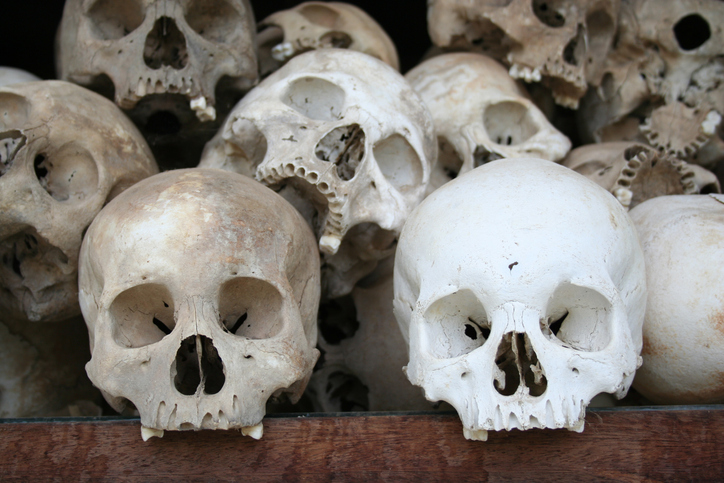
Posted On : Dec 16 2020
Khmer Rouge : The Dark Legacy of Cambodia`s Genocidal Regime
The Khmer Rouge, led by Pol Pot, ruled Cambodia from 1975 to 1979, leaving a devastating legacy of genocide and suffering. This article examines the origins, ideology, actions, and consequences of the Khmer Rouge regime, shedding light on one of the darkest chapters in Cambodian history.

The Khmer Rouge emerged as a communist movement in the 1950s and was influenced by Marxist-Leninist ideology. Led by Pol Pot, they aimed to establish a radical agrarian communist society in Cambodia, eradicating all remnants of capitalism, urban life, and perceived foreign influences. Their vision was rooted in extreme collectivization, where individuals were forcibly relocated to rural labor camps.
In April 1975, the Khmer Rouge captured the capital city, Phnom Penh, following years of civil war and U.S. bombing campaigns against North Vietnamese forces in Cambodia. Pol Pot's forces took control of the country, renaming it Democratic Kampuchea, and immediately implemented their radical agenda.
Under the Khmer Rouge, Cambodia was subjected to a brutal regime characterized by forced labour, mass executions, and widespread atrocities. The regime forcibly evacuated urban areas, sending millions of people to rural labour camps where they endured inhumane conditions, forced labour, and starvation. Intellectuals, professionals, and anyone perceived as a threat were systematically targeted and executed.
The Khmer Rouge's policies resulted in one of the most devastating genocides in modern history. An estimated 1.7 million Cambodians, approximately 25% of the population, perished from execution, forced labour, or starvation during their rule. Mass graves, known as the Killing Fields, are a haunting testament to the scale of the atrocities.
The Khmer Rouge's brutal rule and genocide led to international condemnation and isolation. In 1979, Vietnam invaded Cambodia, toppling the Khmer Rouge regime. The United Nations continued to recognize the Khmer Rouge as the legitimate government of Cambodia until the early 1990s, further compounding the tragedy.
In the decades following the Khmer Rouge's fall from power, efforts to bring its leaders to justice faced numerous challenges. The Extraordinary Chambers in the Courts of Cambodia (ECCC), also known as the Khmer Rouge Tribunal, was established in 2006 to prosecute key Khmer Rouge leaders. Several top leaders, including Pol Pot's chief torturer, have been convicted and sentenced.
Cambodia's recovery from the Khmer Rouge's devastation has been a long and painful journey. The scars of this dark period still linger, impacting generations of survivors and their families. Efforts to rebuild the nation, provide support to survivors, and preserve the memory of those who perished continue.
The Khmer Rouge's rule in Cambodia left an indelible mark on the country and its people. The genocide and brutality perpetrated by the regime resulted in immeasurable suffering and loss. Today, Cambodia is a nation in the process of healing, confronting its past, and seeking justice for the victims. The story of the Khmer Rouge serves as a sombre reminder of the horrors that can be unleashed when radical ideologies are allowed to take root unchecked, and it underscores the importance of upholding justice and human rights in the face of such atrocities.
No Comments Added




















